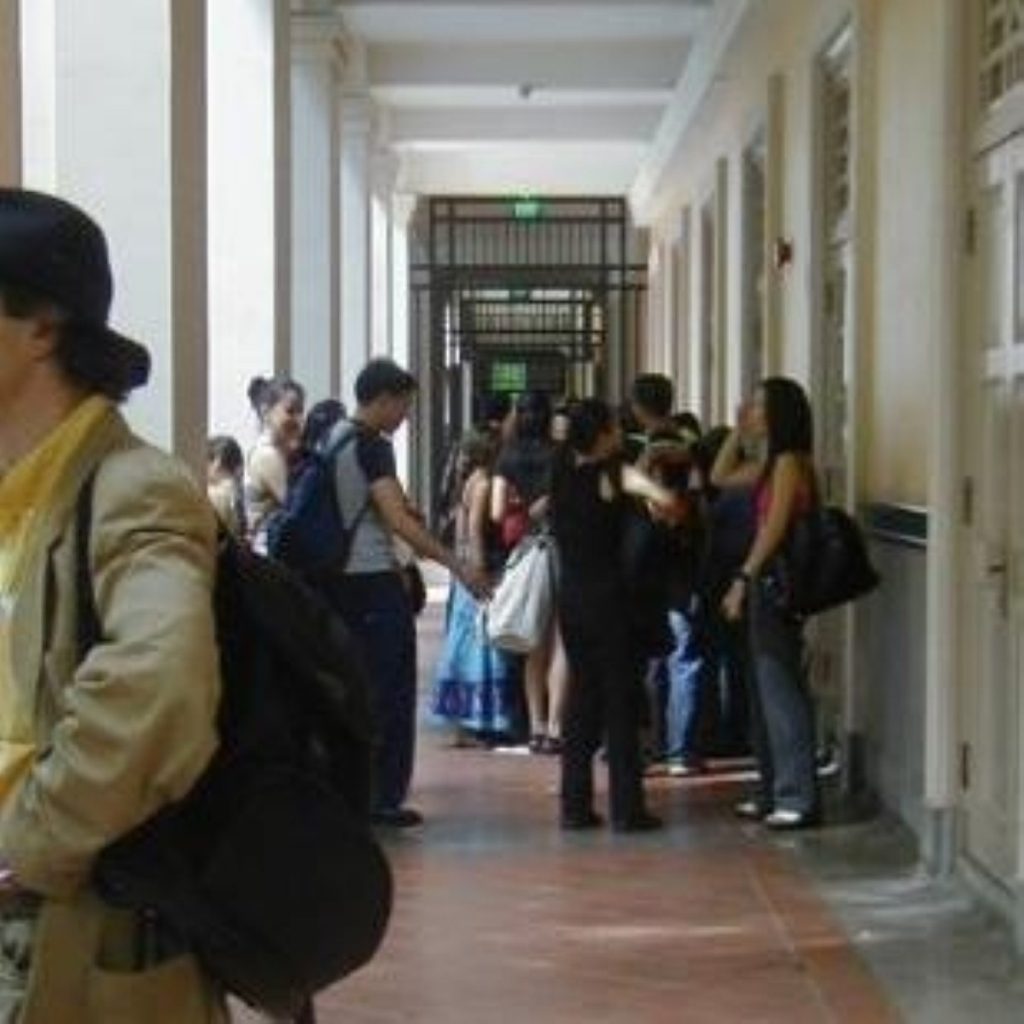Quarter of a million claiming education maintenance allowance
The Government is urging more 17 and 18 year olds to sign up to its education maintenance award (EMA) scheme.
Introduced national wide in September as an attempt to curb the post-16 drop out rate, figures released this morning from the Department of Education and Skills indicate that more than a quarter of a million students are now receiving the money.
Students from households with an annual income of £30,000 or less receive a weekly allowance – worth up to £30 a week – for help with travel expenses, books and course equipment in return for keeping up their attendance and handing in homework on further education courses.
The EMA was introduced after a three-year pilot in 56 local education authority areas. It covers students on vocational courses, A-levels or highers at schools and colleges.


Britain’s post-16 drop out rate has been one of the worst in the industrial world. In a recent survey Britain was ranked 27th out of 30 leading industrialised countries, ahead of Mexico, Turkey and Greece, in a study of post-16 staying-on rates.
Ivan Lewis, Minister for Skills and Vocational Education, welcomed the takeup figures and encouraged others to seize the new opportunity to receive money for training.
“With so many students now benefiting from their regular EMA payments and choosing to stay on in education we are reducing this country’s post-16 drop-out rate.
“I urge all young people who may feel tempted to drop out into low-paid work to get in touch with their local college and inquire about available courses.
“If they attend and make progress they will not only receive EMA but gain valuable qualifications.”
Students are now being urged to apply for short courses beginning in the New Year.
In the pre-budget report this month, Chancellor of the Exchequer, Gordon Brown, pledged to introduce policies to help young people move from unskilled to skilled work.
Mr Brown outlined a package of training and skills to give young people without skills a “second chance”.
“A policy of opportunity for all must provide opportunity for those who have missed out and should, in the economic interests of the country, have a second chance,” he said.

